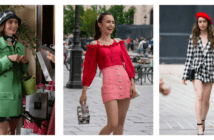[youtube]qhtjyysec5A[/youtube]
Today’s brand-focused keynote featured The Coca-Cola Company’s Jonathan Mildenhall, vice president of global advertising strategy and content excellence, who began his talk by thanking attendees.
« It is our current relationship with you all that is going to future-proof our marketing » as content’s reach expands across new and diverse media, he said.
To frame his talk, he shared parts of Coca Cola’s 2020 Content Manifesto, available in its entirety online.
« The Coca-Cola Company intends to double the size of business between now and 2020, so that means every single marketing norm needs to be reconsidered if we’re going to meet that, » Mildenhall explained. Hence the manifesto.
Fueling this goal is a mission to produce what he called « liquid content« : elements of content that move freely amongst themselves but do not become separate stories. « Our stories must remain connected. These ideas will be so compelling they take on a life force of their own. »
The stories Coca-Cola seeks to produce must add value and significance to people’s lives, to be « the world’s most engaging content », which means finding « the world’s finest creative minds » to work with. In other words, the global brand has fully embraced its new role as a content producer in its own right.
Coca-Cola’s five creation principles:
- Inspire participation amongst the best
- Connect these creative minds
- Share results of efforts
- Continue development
- Measure success
As a brand, « our role is to govern the flow of its liquid content: by defining the North Star, » as Mildenhall put it. And as many needs won’t be known until the content itself is actually in the market, there must be room for flexibility.
Music, diversity and a sense of the uplifting play a big role in Coca-Cola’s work. Some of the content it’s created across different industries and genres include:
– A documentary for its London Olympics campaign with hit-making music producer Mark Ronson. The trailer:
« We turned this journey into a documentary series. That in itself became an event in London. That event in London has been done and is turning into advertising, » Mildenhall said.
– A documentary about David Guetta, sponsored by Coca-Cola energy drink Burn:
« Something we’re very very proud of has been seen as a feature film in over 65 markets, » said Mildenhall proudly in reference to the Guetta documentary.
– A collaboration with high-end fashion brand Dolce & Gabbana for its Fall/Winter 2011/2012 menswear show. Clothing was branded with the Coca-Cola logo in a subtle, stylish and slightly vintage way:
– A collaboration with artist K’naan to remake his « Wavin’ Flag » song, which became the theme for the World Cup South Africa:
Afterward, Mildenhall surrendered the stage to Benoît de Fleurian, managing director of Ogilvy & Mather Paris, who showed us its latest Coke Zero project.
De Fleurian called Coke Zero « a space with possibilities ». So Coke Zero’s goal was to push the message that action drives possibility.
« What if Coke Zero could help this generation act on their dreams? » he wondered.
They decided to use the vehicle of dance, and partnered with (MIPTV 2011 speaker) choreographer/director Jon Chu as well as dance crew The LXD. Together they launched a global social media audition to find a great dancer with a trademark dance that told a story.
« Markets around the world participated in the audition through Facebook, Twitter and Youtube… and what was special about the audition was that it was interactive. We had the LXD crew interacting with all the submitters. They coached them, » said de Fleurian.
A dancer called Joey, street name Knucklehead, was ultimately chosen for his « toe tappy » dance, a kind of victory dance Joey invented out of the grist of a difficult life to celebrate life’s little joys.
Jon Chu and The LXD helped simplify the dance and then spread it. It quickly became a global phenomenon.
« We made toe tappy become a part of pop culture, » said de Fleurian. « And when the story was solid and amazing enough, we wrapped it up in a TV commercial, a film [that is]really iconic and emotional »… a message to other « Joeys » to pursue their dreams.
You can see Knucklehead’s Tale of Possibility on MakeitPossibleProject.com.





Un commentaire
Pingback: Dolce & Gabbana s’allie avec Coca-Cola pour sa collection hommes automne/hiver 2011/2012 : Veille du Brand Content